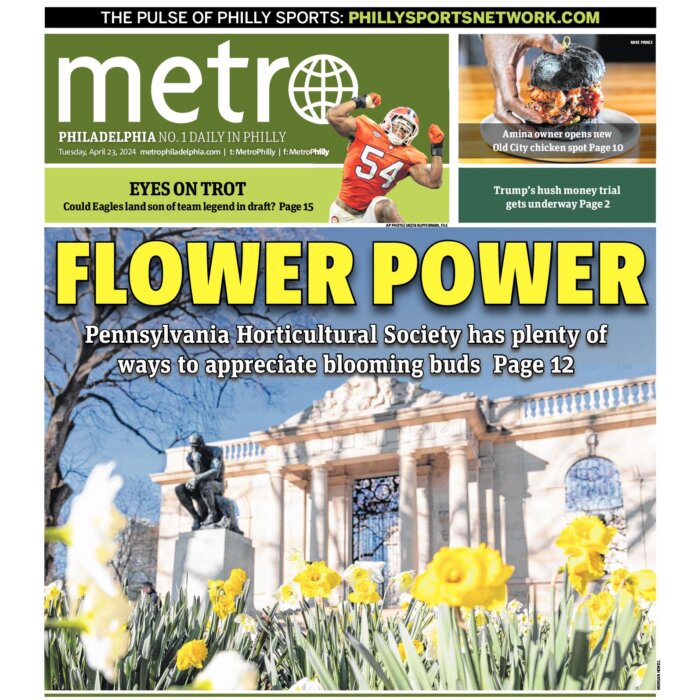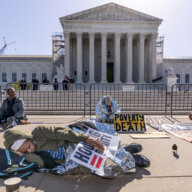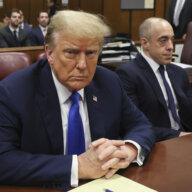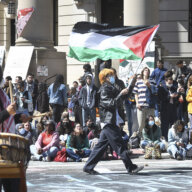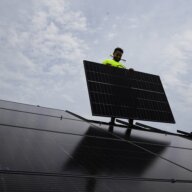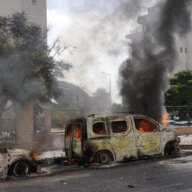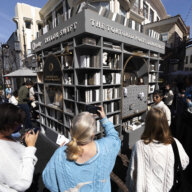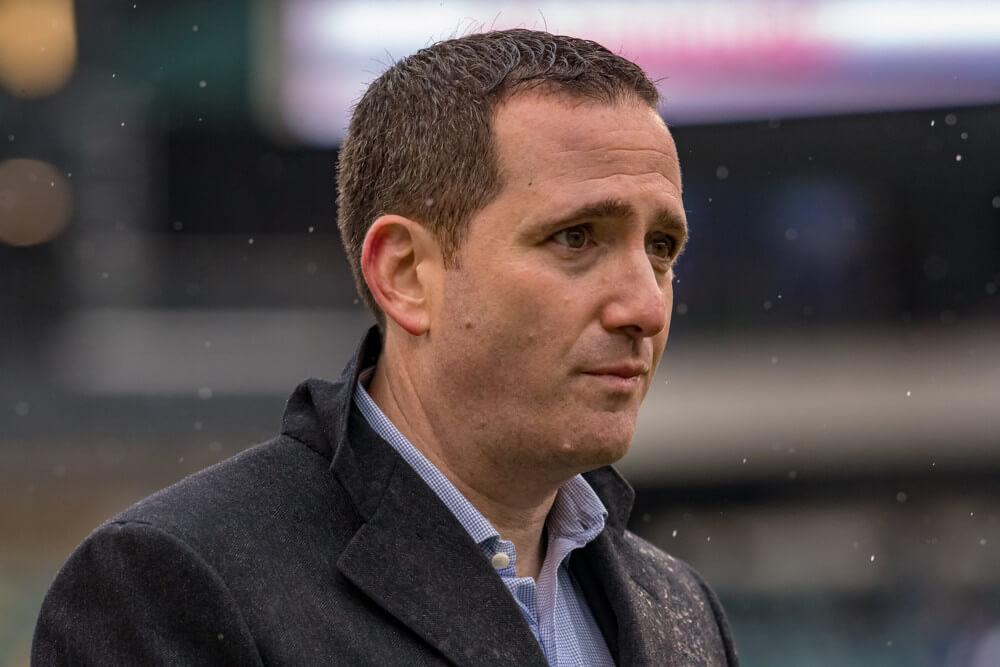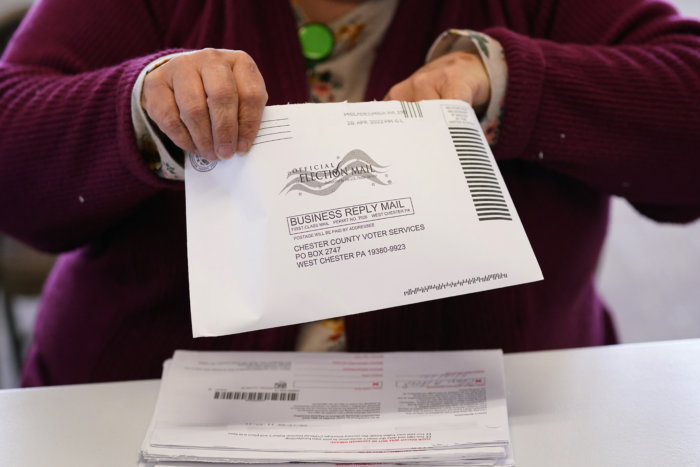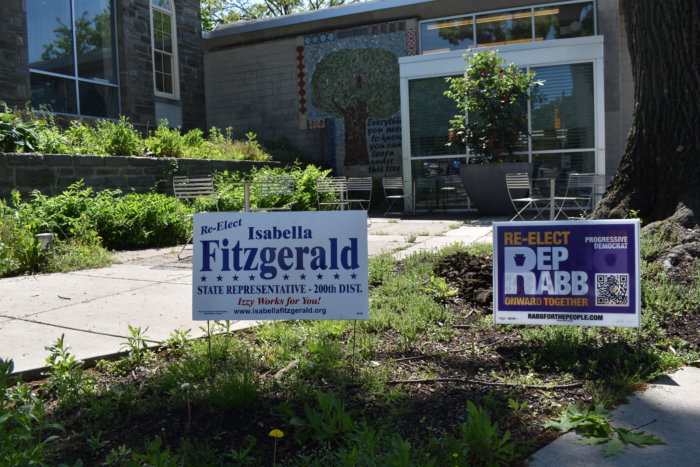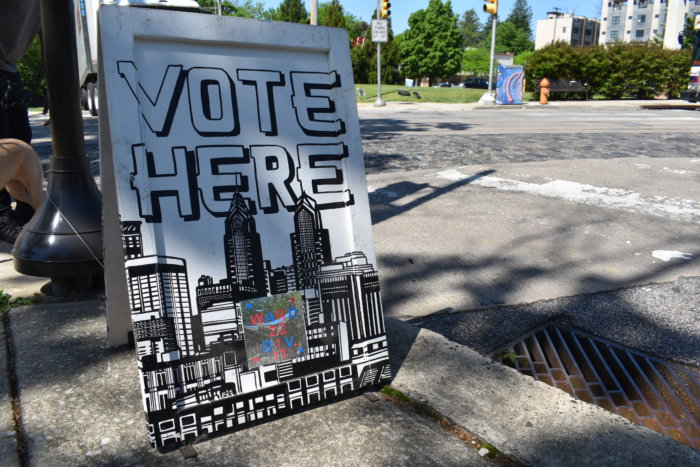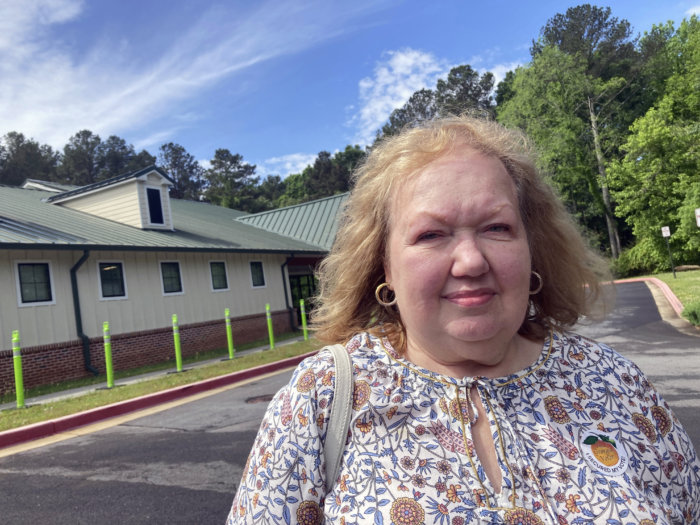It all comes down to this.
Hundreds of thousands of Philadelphians have already voted, but many are expected to cast their ballots in the traditional way on Tuesday.
Voters in Pennsylvania are expected to play an outsized role, with many analysts predicting the state could be the pivotal piece in deciding who wins the presidency. Candidates, campaign officials and international press have been swarming the area in recent days.
City leaders on Monday sought to reassure voters that it will be safe to travel to a polling place and that their votes will be counted.
The divisive political climate has raised concerns about voter intimidation and coercion at the polls, as has President Donald Trump’s repeated calls for his supporters to closely monitor election proceedings.
District Attorney Larry Krasner said he’s seen issues in other states and that there’s been “some warning signs” in recent days.
“If you are planning in Philadelphia to try to steal our votes, I’ve got something for you,” he said at a news conference outside Marian Anderson Recreation Center in the Graduate Hospital neighborhood on Monday. “I got a jail cell. I have charging papers.”
Examples of voter intimidation include blocking the entrance to a polling place or threatening someone waiting to cast their ballot. Such actions could result in a felony charge, officials said.
In addition, party officials, who typically hand out political flyers, aren’t allowed within 10 feet of the doorway of a voting location, officials said.
Poll watchers have to live in the city and be registered with the City Commissioner Office. They are allowed to observe and object, but they aren’t permitted to disrupt the process, Assistant District Attorney Andrew Wellbrock said.
Authorities wouldn’t say whether there’s any intelligence suggesting there could be Election Day interference in Philadelphia.
“Elections in Philadelphia have historically been conducted with very few problems, and we do not expect tomorrow to be any different,” said Lisa Deeley, who chairs the three-person board that oversees elections in the city.
Violence near polling places is rare. Wellbrock, who’s on the DA’s election task force, said he doesn’t recall any clashes since he began working on voting issues in 2014.
“I think it’s one of those things people talk about but never really happens,” he said.
Even so, Police Commissioner Danielle Outlaw said a “substantial amount” of officers have been assigned to respond to election-related calls.
Patrols will be roaming in every police district, and supervisors, as well as detectives and assistant district attorneys, will show up to investigate any reports, she said.
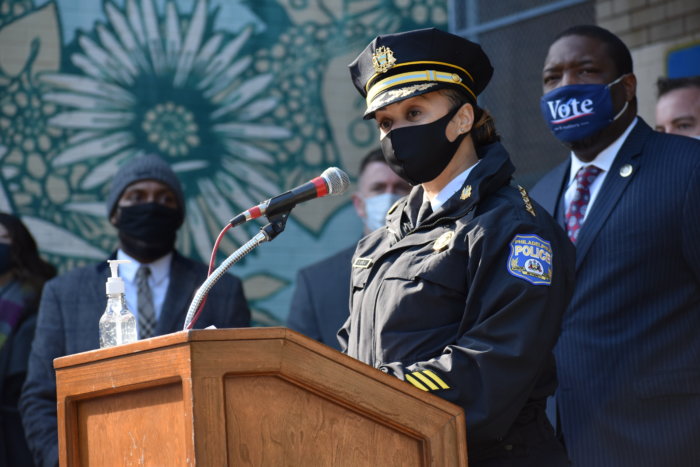
Law enforcement is not allowed within 100 feet of a polling place unless there’s a call for service, officials said.
Krasner said his office has sent out a detailed memo to agencies, including the PPD, about the laws surrounding voting.
“Every vote needs to be counted. A vote for Donald Trump needs to be counted,” Krasner, a noted progressive, said. “A vote for Joe Biden needs to be counted. A vote for anyone needs to be counted.”
The DA’s Office said 90 attorneys and detectives are part of the election task force, which will continue operating until results are certified, likely later this month.
Officials encouraged members of the public to call the task force’s hotline at 215-686-9641 if they witness potential interference at the polls.
A total of 718 voting locations will be open from 7 a.m. to 8 p.m. Tuesday, and 85% of Philadelphians will be able to go to their pre-COVID-19 polling places, according to the city.
To find your polling place, go to www.philadelphiavotes.com or www.pavoterservices.pa.gov.
Last week, city leaders, including Health Commissioner Thomas Farley, detailed virus-related rules for in-person voters.
Be prepared to wait outside and wear a mask. Anyone who arrives with common coronavirus symptoms should alert poll workers, who will instruct them to fill out an emergency absentee ballot, Farley said.
Mayor Jim Kenney and Deeley have also advised residents to expect lines and modest wait times.
People who received mail-in ballots but have not returned them can fill out their selections and drop off their envelope at one of the city’s 17 satellite election offices or 14 drop boxes.
They can also bring it to their polling place, have it voided and cast their ballot on the machine if they would prefer to vote in-person.
Mail-in ballots cannot be dropped off at polling places.
If a person requested a mail-in ballot and they lost it or didn’t receive it, they can cast a provisional ballot at their voting location. Their vote will be counted after authorities check to make sure they have not previously voted in the election.
A voter whose mail-in ballot was rejected because they made a mistake in filling it out can also vote by provisional ballot.
